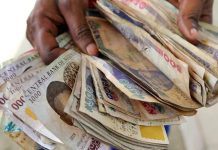The federal government has signed an Interconnected Mini-grid Acceleration Scheme (IMAS) deal with eight indigenous solar mini-grid developers for the establishment of 23 mini-grids across 11 states of the country.
Expected to generate a 5.4-kilowatt peak to connect about 27,600 households, and impact over 138,000 Nigerians in two years, the €9.3 million project is being coordinated by the Rural Electrification Agency (REA) with support from the European Union and the German government.
At the award signing ceremony, the Minister of State, Power, Goddy Jedy-Agba, said the programme was geared towards achieving the country’s vision of generating at least 30, 000 megawatts of electricity by 2030.
Jedy-Agba noted that the administration of President Muhammadu Buhari was always open to opportunities that would achieve the acceleration of electricity in Nigeria.
According to him, the national renewable energy and energy efficiency policy, vision 30:30:30 aim at achieving 30,000 megawatts of electricity by the year 2030, with renewable energy contributing 30 per cent of the energy mix.
To achieve this, the minister stated that Nigeria would have to construct over a thousand mini-grids of 100 kilowatts.
The eight local solar mini-grid developers include Acob Lighting Technology Limited, Gve Projects, Nayo Tropical Technology Limited, Rubitec Nigeria Limited and Darway Coast Nigeria Limited, Synergy Limited, Sosa-Protergia Joint Development Company Limited, and A4&T Power Solutions Limited.
They would receive in-kind grants through the REA with support of the European Union and the German Government within the framework of the Nigerian Energy Support Programme (NESP).
The indigenous developers are expected to establish 23 mini-grids across 11 states, which include, Zamfara, Niger, Plateau, Kwara, Kogi, Osun, Ogun, Lagos, Delta, Anambra, and Cross River.
“It is our hope that the signatures we put down today in these documents set a precedent for the new and improved power and energy sector in Nigeria.
“As an agency, we encourage investors to explore the solar mini-grid sector. However, one major constraint to this is usually financing. This is why the REA, with the support of NESP, is working together to alleviate this bottleneck.
“We do this by providing in-kind grants to selected mini-grid developers on favourable and encouraging terms as contained in the grant agreement,” he stressed.
According to him, the main objective of the intervention is to design and test a tender model for interconnected solar mini-grids, leading to the foundation of the scheme.
“The wonderful thing about the IMAS project is that we have ensured that all the developers are Nigerians. This is to say that the Nigerian energy sector has come a long way from what it used to be and we are proud of this,” he explained.
Head of programme, NESP, Benjamin Duke, assured that his team would continue to work to build investors’ confidence in the sector by developing an accurate electricity market intelligence that will provide investors with accurate data about the country’s electricity needs.











